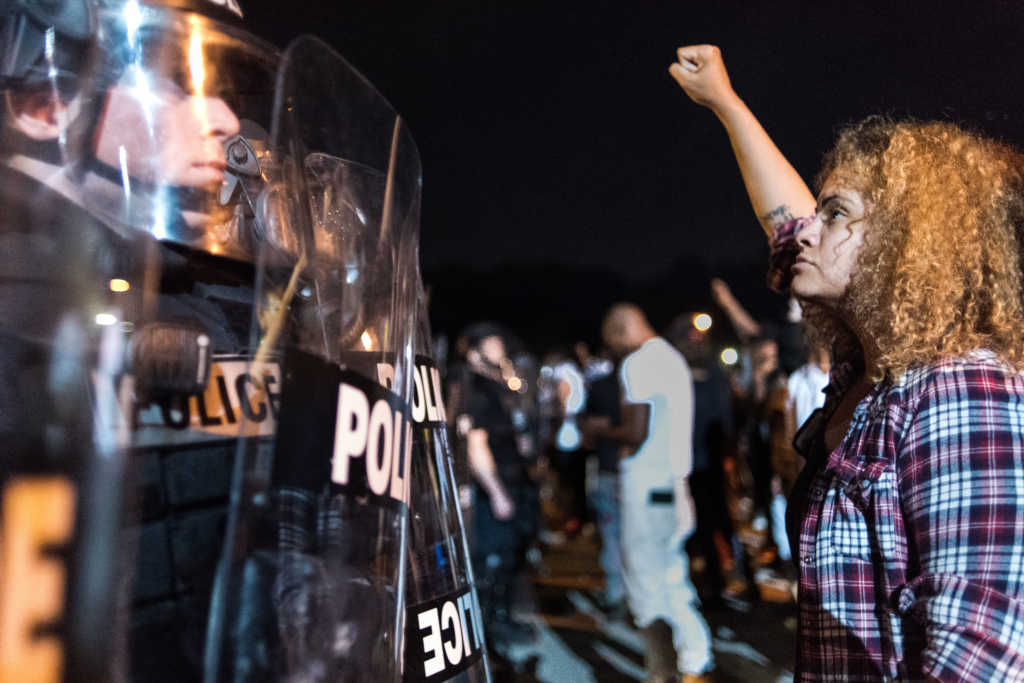By John Jessup
WASHINGTON – Anger over the recent haunting images of the death of George Floyd sparked a worldwide movement.
There’s another movement gaining traction, although it’s not as well known. It’s marked by two words that many have never heard: qualified immunity.
Qualified immunity effectively acts as a shield for law enforcement. “That’s why we call qualified immunity an unlawful shield because it is a shield for public officials who have committed constitutional violations to escape accountability for their actions,” said Jay Schweikert, a lawyer at the Cato Institute’s Project on Criminal Justice.
When police use excessive force that may violate a person’s rights, that person can try to recover damages by claiming a violation of civil rights. But increasingly those claims are not even given their day in court because of the doctrine of Qualified Immunity, and the doctrine’s widespread application in civil cases seeking police accountability.
The law’s origin comes from the Enforcement Act of 1871, designed to protected recently-freed slaves after the Civil War. Over the years, a section of the law – protecting public officials in the course of their work – evolved into today’s version of qualified immunity, a principle created by the Supreme court.
It essentially provides a “shield of liability against civil lawsuits,” so long as the public official’s conduct does not violate “clearly established law.”
“The way it works in practice is that courts would require would-be civil rights plaintiffs to find a prior case already decided in their jurisdictions where someone else’s rights were violated in essentially the same way,” Schweikert said.
However, no two cases are exactly the same. For example, after being cleared of any wrongdoing, a Cleveland man filed a lawsuit alleging he was punched in the neck and jailed by police who never identified themselves but suspected he was breaking into his own apartment.
A judge ruled because of qualified immunity, neither the police nor the city could be sued.
And an appeals court last year ruled two California police officers – who allegedly stole over $220,000 while executing a warrant – also couldn’t be sued, simply because there’s no legal precedent in that part of California.
Schweikert isn’t the only one drawing attention to the legal question.
Last month, A Reuters investigation reviewed some 500 cases over 15 years and found a trend. Courts denying victims the right to challenge violations of their constitutional rights, making it harder to win future cases against the police.
“Qualified immunity routinely enables public officials, especially members of law enforcement, to get away with egregious misconduct because they happen to be the first one to create that kind of misconduct,” Schweikert said.
Some members of law enforcement seem willing to reconsider the unintended effects of the rule. But many also hesitate to end the doctrine seen as essential so police can carry out their duties without the constant fear of lawsuits.
Captain Sonia Pruitt has served nearly 30 years with the Montgomery County, Maryland, Police Department.
“Black officers play a really vital role in policing. It is a really noble profession,” Pruitt said.
As head of the National Black Police Association, Pruit says it’s time for Qualified Immunity for law enforcement to be re-examined.
“We would ask that any of the parameters surrounding QI be examined because it could be a way for officers to feel like they would get more leniency if they commit an act, a violation of misconduct in the line of duty. It could be a hindrance to police reform and criminal justice reform,” she said.
Schweikert believes it not only thwarts justice but works against the very men and women it’s designed to protect.
“I believe this doctrine is doing a tremendous disservice to members of law enforcement because it is depriving them of the public trust and credibility they need to do their job safely and effectively,” he said.
And momentum for change is building, with both liberal and conservative justices saying it’s time to review the court’s own solidified principle.
And lawmakers are introducing legislation to revoke the provision for gun-carrying officers in an effort to combat excessive force and police brutality.
It’s a rare issue of consensus across ideological lines, seen recently on criminal justice reform.
Nicole Porter witnessed the power of the faith community when she worked to advance the First Step Act.
“In my work at the state level, faith communities are key in representing a base of constituents who are supportive of criminal justice reform and talking about restorative justice and other alternatives of justice,” Porter said.
Porter and Schweikert agree that among the ways to honor George Floyd is to change the broken system before it gets worse.
“My hope is that we are able to address that now and make a simple but massive change to eliminate this doctrine. I hope that will offer some small measure of redemption for the death of George Floyd and so many other people like him,” Schweikert said.



